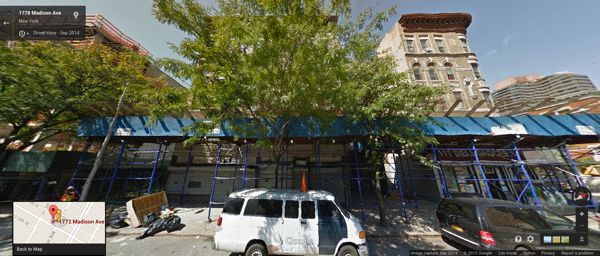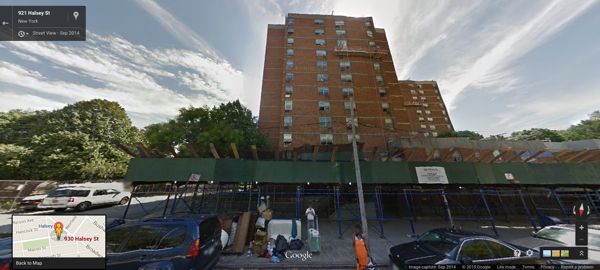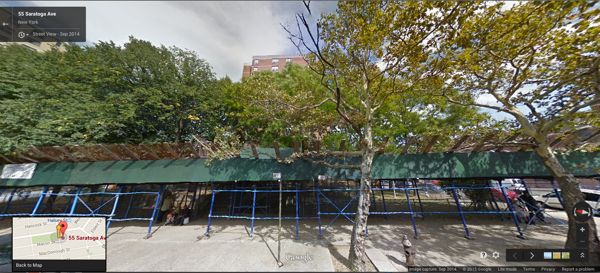Cash-strapped NYCHA sold apartment buildings that had been recently refurbished
NYCHA claimed that it needed to sell 900 Section 8 apartments, because it could no longer afford to maintain them.
However, a Progress Queens investigation has revealed that four buildings that were sold were recently refurbished by NYCHA, seemingly refuting claims that these buildings were too dilapidated for NYCHA to maintain.

Before NYCHA sold the buildings 1780 and 1782 Madison Avenue in Manhattan to private real estate developers, the city housing agency spent an unknown amount of money making unspecified refurbishing or repairs to the buildings.

Before NYCHA sold the building at 903 Halsey Street in Brooklyn to private real estate developers, the city housing agency spent an unknown amount of money making unspecified refurbishing or repairs to the buildings.

Before NYCHA sold the building at 55 Saratoga Avenue in Brooklyn to private real estate developers, the city housing agency spent an unknown amount of money making unspecified refurbishing or repairs to the buildings.
|
Conflicts of Interest : Administration officials were either paid to lobbying in support of the sale of approximately 900 NYCHA Section 8 apartments, or else they had prior relationships with some of the developers. A controversial structured finance transaction originated by the New York City Housing Authority, or NYCHA, to create a special purpose vehicle to offload some Section 8 buildings to private developers is coming into greater view, according to an analysis by Progress Queens. The portfolio of project-based, Section 8 buildings that NYCHA sold to a consortium of private investors named Triborough Preservation LLC included four buildings that had recently been refurbished. The portfolio of buildings that were sold were situated in neighborhoods, where there was a great potential for real estate value appreciation due to recent trends in gentrification, begging the question whether real estate developers had cherry-picked some of the best properties amongst NYCHA's roster of buildings. Two principal de Blasio administration housing officials, Gary Rodney and Vicki Been, have had prior close ties to two of the developers in the consortium, BFC Partners, L.P., and L&M Development Partners, Inc., respectively. A third de Blasio administration official, Jonathan Greenspun, who serves as a commission on the city's Commission on Human Rights, was a lobbyist for BFC Partners, L.P. Administration officials defended the controversial sale by arguing that NYCHA did not have the financial resources to maintain the dilapidated buildings. However, as documented in archival photographs published by Google Street View, four of the buildings had had scaffolding encircling the buildings, with one photograph showing workmen suspended along the front of one building doing exterior construction or repair work. Some government reform activists told Progress Queens that the de Blasio administration disenfranchised taxpayers and NYCHA tenants by sidestepping the Uniform Land Use Review Procedure, or the ULURP process, when it sanctioned NYCHA’s sale of the properties. According to one source, a lawyer with expertise in city legislation, Section 197-c of the City Charter requires that any disposition of city real property must be made through the ULURP process. City housing officials have suggested that they may seek to sell other NYCHA buildings in order to offload the responsibility of upkeep and maintenance for the buildings, a potential backdoor for for-profit real estate developers to raise the rents on tenants living in public housing. According to a reading of some of the transaction agreements, the city conveyed rights to the consortium of developers to building residential and non-residential units on developable land that was also sold along with the project-based, Section 8 buildings. Officials with NYCHA, City Hall, and the developers, who bought the Section 8 apartments, declined to answer questions about the transaction in time before the publication of Progress Queens report. |
RELATED Cash-strapped NYCHA sold apartment buildings that had been recently refurbished (Progress Queens) Councilmember Torres : A public housing puppet on REBNY's strings (Progress Queens) |
